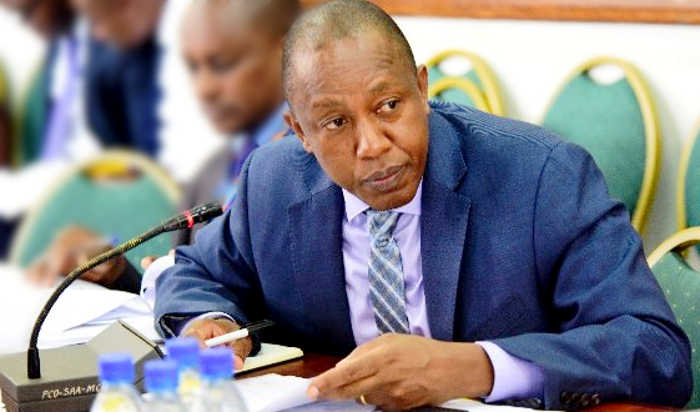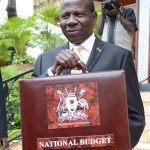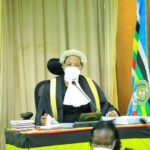Kenneth Mugambe, the former Director of Budget in the Finance Ministry could soon be called by police’s Criminal Investigations Department (CID) regarding budget mess over the years he has held that office.
Also lined up for questioning are four committee Clerks of Parliament who served on both budget and finance committees in the 10th Parliament.
During the State of the Nation Address (SONA), in early June, President Yoweri Museveni said he had credible information that officials in the ministry were conniving with Members of Parliament to distort the budget for their selfish interests, particularly stilling government money.
In fact, days ago Museveni refused to sign Appropriation Bill 2024 after finding out that Shs750 billion had been removed from critical areas, something he attributed to those managing the budget process. With Parliament having re-allocated Shs750 the money as desired by Museveni, he is now expected to assent to the Bill.
Museveni’s statement on syndicates in the Finance ministry and parliament, would later result in the arrest of MPs Paul Akamba, and Cissy Namujju on allegations of corruption, regarding the budget process.
Mugambe took an early retirement.
CID investigators this website talked say Mugambe is likely to be interrogated together with four clerks of committee in parliament for various budget anomalies.
Mugambe has 14 years working experience in planning, public expenditure management, public sector budgeting, macroeconomic management and public administration.
He is a board member of the National Information Technology Authority (NITA) and has worked as a Principal Economist responsible for the Budget Execution and Evaluation Section of the Budget Policy and Evaluation Department.
He formerly worked as an Assistant Commissioner in the Economic Development Policy and Research Department where he was a lead member of the team that formulated the Poverty Eradication Action Plan (PEAP) 2004.
As the Commissioner of Budget Policy & Evaluation Department, Mugambe is at the forefront of drawing up the national medium-term expenditure framework that is used as a tool to determine the national expenditure priorities as well as the rationalization of resource allocation both in the short and medium term.








